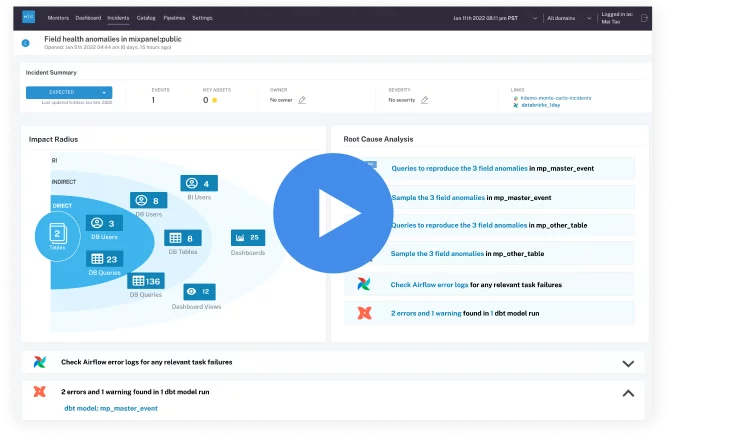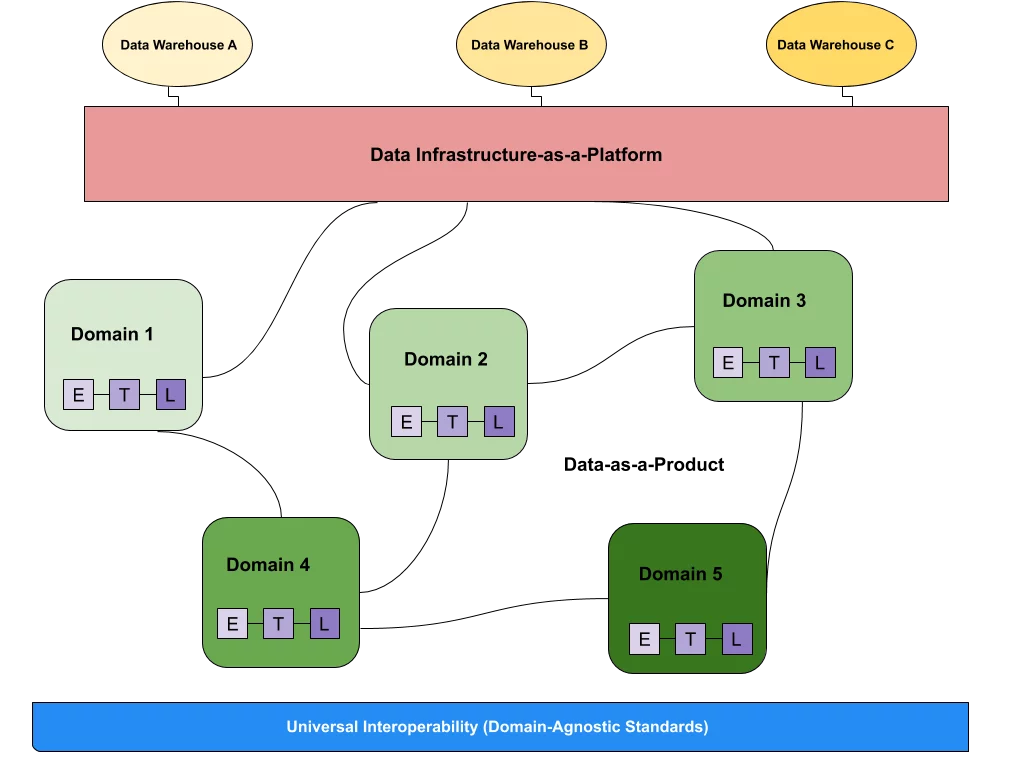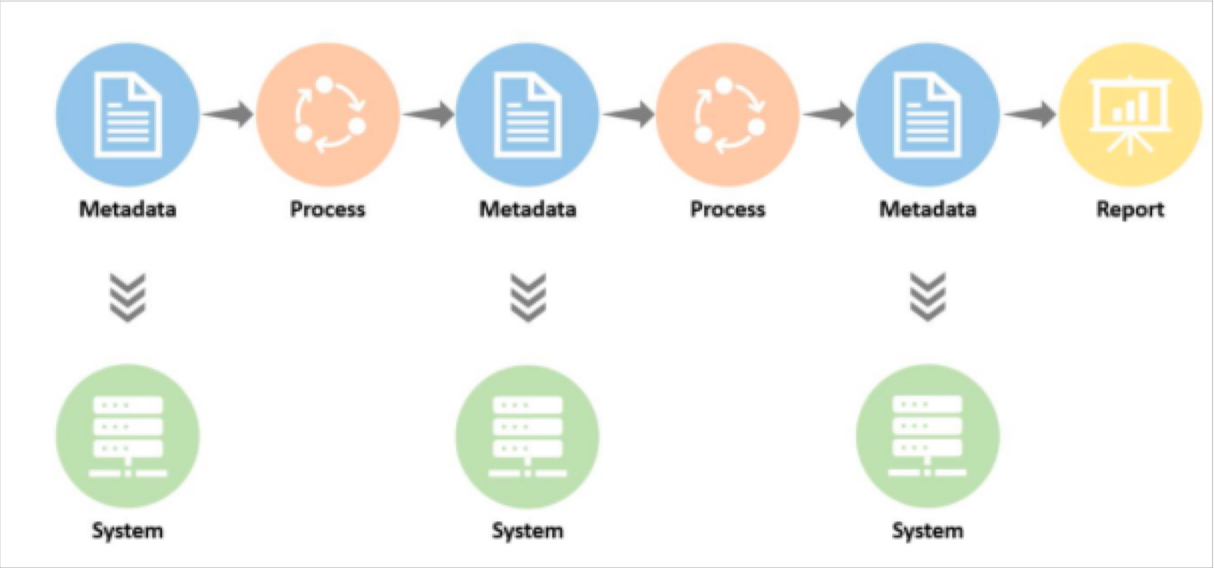Becoming a Data Owner: Roles, Responsibilities, and 4 Best Practices

Companies are discovering that their most valuable asset isn’t just data—it’s data with a custodian. Enter the data owner, a role that’s part babysitter, part asset manager, and part translator between the ones and zeros and the suits in the C-suite.
It’s a position that sits at the intersection of technology, strategy, and governance—a triad that’s increasingly defining competitive advantage in our data-saturated economy.
But like any emerging role, it comes with its own set of challenges and opportunities. In this post, we’ll dive into the world of data ownership, exploring how this new breed of professionals is shaping the future of business intelligence and why, in the coming years, the success of your data strategy may hinge on the effectiveness of your data owners.
Table of Contents
What is a Data Owner?
A data owner is the individual or group responsible for the accuracy, integrity, and use of data within an organization.
Now, you might be thinking, “Wait, don’t we already have IT people for this?” Well, yes, but also no. While your friendly neighborhood IT professional is busy making sure the servers don’t catch fire, the data owner is more concerned with making sure the data doesn’t metaphorically set your business strategy ablaze. It’s like the difference between a building manager and a museum curator – both care for valuable things, but in very different ways.
Who Can Be a Data Owner?
Data owners are usually subject matter experts, department heads, or senior managers with a deep understanding of specific data domains. To be effective in this role, you’ll need a unique combination of technical knowledge, business acumen, and strong communication skills. This is because you’ll bridge the gap between technical teams and business users, ensuring that data assets align with organizational goals and strategies.
Key Responsibilities of Data Owners
The primary responsibility of a data owner is ensuring the quality, accuracy, and integrity of their assigned data assets. This overarching duty encompasses several key areas:
- Implementing and enforcing data governance policies
- Managing data access and permissions
- Ensuring compliance with data regulations and security standards
- Overseeing the entire lifecycle of data from creation to deletion
- Collaborating with other departments to optimize data usage
- Resolving data-related issues and discrepancies
In this role, you’ll play a crucial part in establishing trust in your organization’s data assets, which is essential for data-driven decision-making.
Benefits of Being a Data Owner
Are you ready to take on a role that can significantly impact your organization’s success? Becoming a data owner offers several benefits:
- Strategic influence: You’ll have significant input on strategic business decisions through your data insights. For example, as a data owner in a retail company, your analysis of customer purchasing patterns could inform product development and marketing strategies.
- Career advancement: As organizations become more data-centric, your role as a data owner offers opportunities for career growth. You might progress to roles like Chief Data Officer or Data Governance Director.
- Cross-functional collaboration: Data ownership fosters collaboration across departments, broadening your organizational knowledge. You’ll work with marketing on customer data, finance on financial data, and operations on supply chain data, giving you a holistic view of the business.
- Skill development: The role requires continuous learning about data management, governance, and emerging technologies. You’ll have the opportunity to master tools like data quality platforms, SQL, and data visualization software, making you a valuable asset in the job market.
Example of Data Ownership in Action
Let’s look at how Tanguy, a real-world data owner, tackled common challenges you might face.
Challenge:
As the data owner for Aircall’s internal data, Lead Data Engineer Tanguy d’Hérouville faced the challenge of maintaining data quality and trust across a rapidly growing organization. With over 18,000 SMB clients and 700 employees worldwide, Aircall’s diverse data landscape required a robust strategy to ensure reliable, self-serve analytics for various teams.
Approach:
Tanguy tackled these challenges with a three-pronged strategy:
- Team Structure: Tanguy organized the data team into vertical-specific groups (Product, Customer, GTM Analytics) to align with business needs.
- Self-Serve Infrastructure: He implemented a modern data stack centered around SQL and dbt, enabling analysts to manage their own data pipelines.
- Data Quality Initiative: Recognizing growing distrust in their data, Tanguy led the adoption of Monte Carlo’s data observability platform.
Implementation:
As the data owner, Tanguy:
- Set up custom monitors for critical data assets
- Established data domains in Monte Carlo to match team verticals
- Implemented alerting systems for each data subteam
- Created a separate domain for cross-functional, high-priority data assets
Results:
With all of this hard work, Aircall had:
- Reduced data downtime and faster incident resolution
- Improved proactive communication about data issues
- Enhanced tracking and reporting of data quality metrics
This approach from Tanguy significantly improved data reliability and team efficiency at Aircall. To achieve similar success in your role as a data owner, let’s review some best practices.
Best Practices for Effective Data Ownership
To excel in your role as a data owner, try to follow these proven techniques:
- Leverage data observability tools to monitor and maintain data quality at scale. For instance, set up automated alerts for data anomalies or changes in data volume that could indicate issues.
- Stay informed about emerging data technologies and regulations through continuous learning. Attend industry conferences, participate in webinars, or pursue relevant certifications like CDMP (Certified Data Management Professional).
- Implement clear processes for data quality assurance, communication, and issue resolution. This might include creating a data quality scorecard or establishing a data issue ticketing system.
- Regularly review and update data governance policies to align with changing business needs. For example, conduct quarterly reviews of data access permissions and update them based on role changes within the organization.
How Monte Carlo Supports Data Owners
At Monte Carlo, we understand the challenges you’ll face as a data owner in maintaining high-quality, reliable data assets. Our data observability platform provides powerful tools for monitoring data quality, detecting anomalies, and ensuring data reliability across your entire data ecosystem.
With Monte Carlo, you can:
- Automatically detect and alert on data anomalies
- Gain end-to-end visibility into data lineage
- Monitor data freshness and volume fluctuations
- Collaborate effectively with data engineers and analysts
- Demonstrate the impact of data quality initiatives
Ready to elevate your role as a data owner? Request a demo today and take the first step towards transforming your organization’s data quality. To learn more, enter your email below or explore our resources section for more insights on data observability and governance.
Our promise: we will show you the product.
Frequently Asked Questions
What are the benefits of being a data owner?
Being a data owner offers several benefits: strategic influence on business decisions, career advancement opportunities in data-centric roles, cross-functional collaboration, and continuous skill development in data management and emerging technologies.
What is an example of data ownership?
An example of data ownership is the role of Tanguy d’Hérouville at Aircall, where he maintained data quality and trust across the organization by organizing the data team into vertical-specific groups, implementing a self-serve infrastructure, and leading a data quality initiative using Monte Carlo’s data observability platform.
Who can be a data owner?
Data owners are usually subject matter experts, department heads, or senior managers with a deep understanding of specific data domains. They need a combination of technical knowledge, business acumen, and strong communication skills to bridge the gap between technical teams and business users.
What is the primary responsibility of the data owner?
The primary responsibility of the data owner is to ensure the quality, accuracy, and integrity of their assigned data assets. This includes implementing data governance policies, managing data access, ensuring compliance with data regulations, overseeing data lifecycle management, and resolving data-related issues.
What is the difference between system owner and data owner?
This role is different from that of a system owner, who manages the technical infrastructure. While system owners focus on maintaining the platforms and applications that house data, as a data owner, you’d mainly be concerned with the content and quality of the data itself.
 Product demo.
Product demo.  3 Steps to AI-Ready Data
3 Steps to AI-Ready Data  What is a data mesh--and how not to mesh it up
What is a data mesh--and how not to mesh it up  The ULTIMATE Guide To Data Lineage
The ULTIMATE Guide To Data Lineage 




